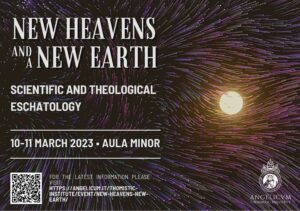The Future of the Solar System: A Scientific View
Jonathan Lunine
Cornell University and Dominican House of Studies
The planets of the solar system have undergone complex evolutions determined by their size, composition and positions relative to the Sun. Much of the success of robotic solar system exploration has been in determining these evolutionary trajectories, from which, knowing how planets cool and the Sun brightens with time, allows us to predict what will happen to each of the planets. Of most interest, because it is our home, is Earth. The long four billion years in which our planet has supported life is remarkable, given all of the ways that “habitability” could have been lost. But as the Sun brightens, the feedback mechanisms that make life possible will fail, and Earth’s oceans will be lost. When that happens, and whether refuges where life—even intelligent life—could shelter, remains speculative. It is interesting that the vision of a new heaven and a new Earth in Revelation included the report that “the sea was no more” (NABRE Rev 21:1). Perhaps we ought not to underestimate the amount of insight into our planetary future granted to John of Patmos!
Jonathan Lunine is currently the McDonald Agape Visiting Scholar at the Dominican House of Studies, on leave from Cornell University where he is the David C. Duncan Professor in the Physical Sciences, His research focuses on astrophysics, planetary science and astrobiology, and is involved in numerous NASA missions. Lunine is a member of the U.S. National Academy of Sciences, a fellow of the American Geophysical Union and the American Association for the Advancement of Science. He is the 2014 recipient of the Jean Dominique Cassini Medal of the European Geosciences Union. Lunine obtained a B.S. in physics and astronomy from the University of Rochester (1980), an M.S. (1983) and a Ph.D. (1985) in planetary science from the California Institute of Technology.


